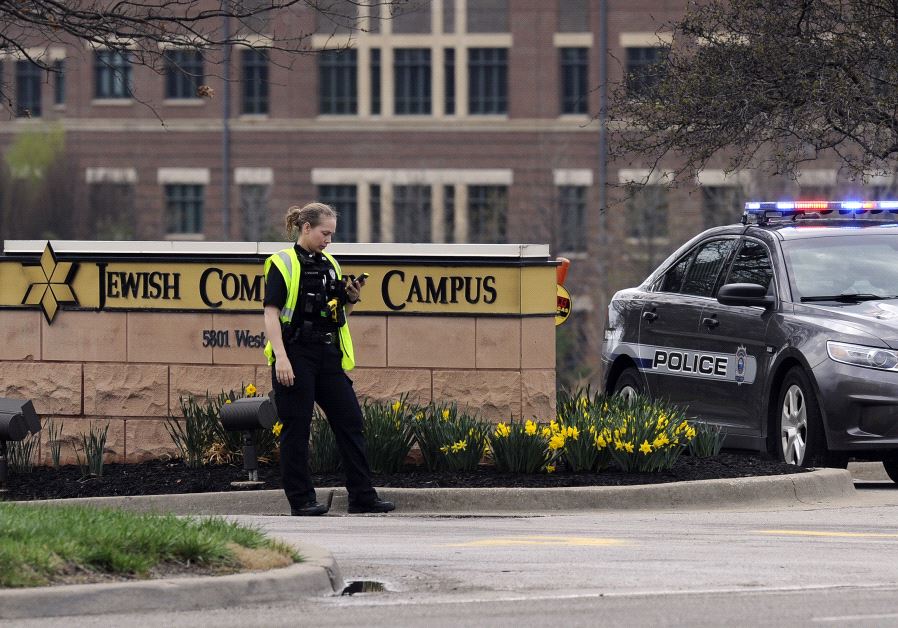JPost Editorial: Israel needs an 'antisemitism czar'
Can the wave of antisemitism in the US and across the world be halted before it escalates further? And what's Israel role in the process?
 Police at the Jewish Community Center of Greater Kansas City in Overland Park, Kansas (File)Updated:
Police at the Jewish Community Center of Greater Kansas City in Overland Park, Kansas (File)Updated: